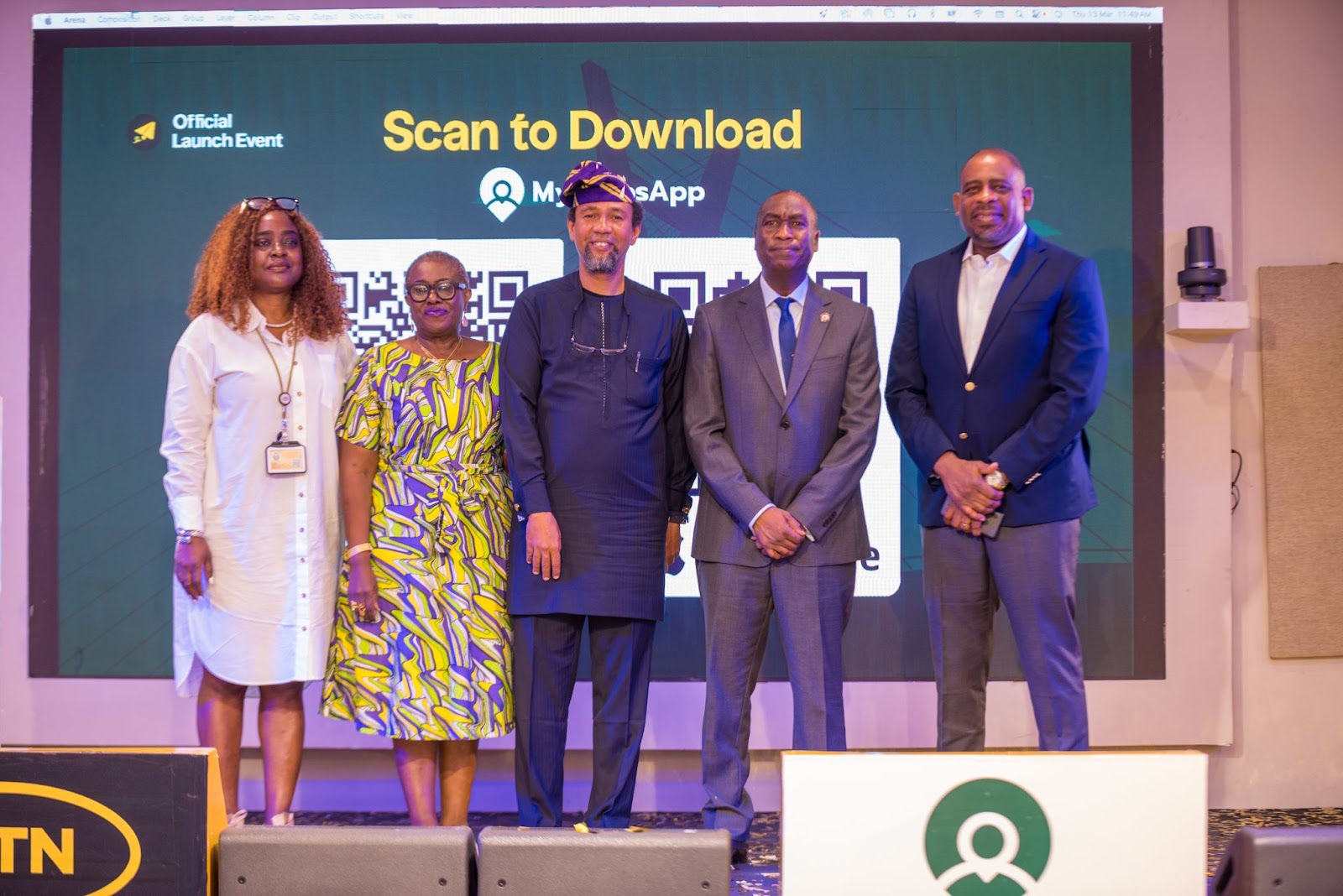Telecom
Airtel Launches Smart Router, Offering Smart TV Experience on Regular TVs

Telecommunications service provider, Airtel Nigeria, has launched a new device called Airtel Smart Router, a 4G router capable of connecting up to 10 devices, with the additional benefit of offering a smart TV experience on a regular television set.

The Airtel Smart Router is programmed to leverage both wireless and ethernet connections to provide users with a smart TV experience directly through their television screens.
With embedded applications, users can effortlessly access popular entertainment streaming platforms such as Netflix, Hulu, and Showmax, dramatically elevating their viewing experience with personalized, immersive, and current content.
Commenting on the launch, Femi Oshinlaja, Chief Commercial Officer, Airtel Nigeria, said the new Smart Router represents a major leap forward in how people experience entertainment at home.
“With the Airtel smart routers, we can now deliver affordable and superior entertainment content from multiple streaming services to the home of many Nigerians without a non-smart TV set. By integrating advanced connectivity and a user-friendly interface, we are offering our customers the ability to unlock a world of digital content directly on their TVs,” he said.
This cutting-edge device will advance home entertainment technology, offering seamless connectivity and access to a wide range of digital content.
In addition to the smart TV advantage, the Smart Router, which is SIM-based and 4G capable, can connect up to 10 other devices concurrently, allowing a mix of entertainment, security, work, or leisure devices all on the same internet subscription.
“Users can connect smart cams, smart doorbells, tablets, smartphones, laptops, and TV at the same time,” Oshinlaja noted.
Telecom
NANS Issues Fresh Protest Notice over Telecom Tariff Hike

National Association of Nigerian Students (NANS) has condemned the recent increase in tariffs by telecommunications companies in Nigeria, threatening to embark on a nationwide protest to compel a reversal.

In a statement jointly signed on Thursday in Abuja by Comrade Anzaku Shedrack Ovye, national secretary-general, NANS and Comrade Samson Ajasa Adeyemi, the student body gave the Federal Government and telecommunications companies a 72-hour ultimatum to reverse the tariff increase.
The students warned that upon the expiration of the ultimatum, students across the country would be mobilized for a series of street protests nationwide to ensure a reversal.
They argued that the arbitrary action of telecommunications companies has further exacerbated the financial burden on millions of Nigerians, particularly students and youths, who are among the dominant end-users of their services.
The statement read in part:
“This decision, which has led to a significant rise in the cost of calls, data, and other communication services, is both unjustifiable and insensitive, given the prevailing economic challenges faced by the populace.
“NANS views this development as a blatant disregard for the welfare of Nigerian citizens and an affront to the principles of affordability and accessibility that should govern the telecommunications sector.
“This administration is committed to promoting the welfare of Nigerian students; hence, it will vehemently oppose any tendency that does not align with this vision.
“NANS is deeply concerned about the adverse impact this tariff hike will have on students, many of whom rely heavily on affordable telecommunications services for academic research, virtual learning, and staying connected with their families.
“Therefore, it is worrisome to comprehend the justifications for these increments, as NANS considers this action a direct threat to the security of Nigerian students and an attempt to further impede their ability to navigate their academic endeavors, maintain familial connections, and secure legitimate personal incomes, particularly for independent students responsible for their upkeep.
“We hereby issue a 72-hour ultimatum to telecommunications companies, the Honourable Minister for Innovation, Digital and Blue Economy, Dr. Bosun Tijani, and the Nigerian Communications Commission to reverse this tariff increase and provide a clear roadmap for ensuring affordable telecommunications services for all Nigerians.
“Failure to comply with this ultimatum will leave NANS with no choice but to mobilize students across the nation for a series of peaceful protests to demand justice, accountability, and a comprehensive audit of activities in the telecommunications sector,” NANS stated.
The leadership of NANS maintained that as student representatives, they would not stand idly by while the rights and welfare of Nigerian students, which they have vowed to protect, are trampled upon by greed, “corporate capitalism,” and regulatory complicity.
NANS also called on the Federal Government to intervene promptly and decisively to address this issue.
Additionally, they urged telecommunications companies to prioritize the interests of their customers over profit margins and to engage in meaningful dialogue with stakeholders to find sustainable solutions rather than inflict further hardship on Nigerians who are already struggling economically.
“As the voice of Nigerian students, NANS remains committed to advocating for policies and actions that promote equity, fairness, and the overall well-being of all Nigerians.
“We will continue to hold all parties and duty-bearers accountable to ensure that the rights of students and citizens are protected,” the statement added.
Telecom
FG Launches Key Initiatives to Bridge Nigeria’s Digital Divide by 2030

Federal Government has restated its dedication to closing Nigeria’s digital divide, with a focus on delivering connectivity to underserved and unserved communities.

Dr. Bosun Tijani, Minister of Communications, Innovation, and Digital Economy, disclosed this on Thursday during a stakeholders’ engagement session held at the Marriott Hotel, Ikeja, Lagos.
Tijani noted that while significant progress has been made in expanding broadband penetration and strengthening digital infrastructure, millions of Nigerians remain without access to reliable digital opportunities.
He announced several flagship initiatives under the Federal Government’s efforts to bridge the divide. These include Project BRIDGE, a 90,000km fibre optic expansion; Project 774, aimed at connecting every local government secretariat with high-speed internet; and the Universal Access Project, targeted at connecting over 20 million unconnected Nigerians.
Other initiatives, such as the National Broadband Alliance of Nigeria (NBAN) and the 3 Million Technical Talent Programme, were also highlighted.
“The Universal Service Provision Fund (USPF) remains a critical tool in delivering this goal, as it supports infrastructure expansion and inclusive policies,” Tijani said.
He stressed the need for strong public-private partnerships and collaboration with development agencies and local communities to achieve sustainable progress.
Dr. Aminu Maida, Executive Vice-Chairman of the Nigerian Communications Commission (NCC), emphasized the importance of unified efforts to build resilient telecommunication infrastructure.
He revealed that projects funded by the USPF had played a significant role in connecting remote communities.
“We urge stakeholders to strengthen partnerships and explore innovative financing models that will ensure sustainable connectivity,” Maida said.
The engagement session also provided a platform for deliberations on practical strategies for addressing barriers, such as inadequate infrastructure and limited digital literacy, which hinder the achievement of universal connectivity in Nigeria.
The Federal Government reiterated its vision of achieving universal access to communications and digital literacy for all Nigerians by 2030.
Telecom
MTN Nigeria, Lagos State Unveil MyLagosApp to Transform Urban Living

MTN Nigeria, in collaboration with the Lagos State Government, on Thursday launched ‘MyLagosApp,’ a digital platform designed to enhance urban living in Lagos.

L-R: Chief Digital Officer, MTN Nigeria, A’isha Mumuni; Legendary Nollywood Actress, Joke Silva; Chief Executive Officer, MTN Nigeria, Dr. Karl Toriola; Deputy Governor of Lagos State, Obafemi Hamzat and Chief Information Officer, MTN Nigeria, Shoyinka Shodunke at the launch of MyLagosApp, a one-stop digital hub designed to simplify urban living, held on Thursday, March 13 at MTN Rooftop Plaza, Falomo, Lagos.
The application, which serves as a one-stop hub for events, entertainment, transport services, hospitality, and government-related payments, aims to simplify access to essential services for residents and visitors.
At the launch event held in Lagos, the Executive Governor, Mr. Babajide Sanwo-Olu, represented by Deputy Governor Dr. Obafemi Hamzat, lauded the partnership as a milestone in leveraging technology to improve lives.
“This collaboration reflects our administration’s commitment to bridging the gap between public and private sectors, using innovation to provide practical solutions for the people,” Hamzat said.
He described the app as a vital tool for fostering transparency, accountability, and seamless access to public services, noting that it aligns with the state’s smart city initiatives.
MTN Nigeria’s CEO, Dr. Karl Toriola, expressed the company’s pride in partnering with the Lagos State Government to achieve this milestone.
“MyLagosApp is a major stride in digital transformation, marking a significant step in making Lagos a truly smart city. It simplifies connectivity, access to services, and promotes an efficient urban ecosystem,” Toriola said.
The app, developed by MTN’s Software Lab, adheres to global security standards and ISO 27001 certification, according to MTN’s Chief Information Officer, Shoyinka Shodunke.
Stakeholders at the event emphasized the role of the app in advancing mobility, supporting local businesses, and enhancing government-citizen interactions.
The application is now available for download on Android and iOS platforms.

 General News2 days ago
General News2 days agoDaphne Dafinone, CBN GOV’s Ally Facing Alleged N100m Fraud Charges – Police

 News3 days ago
News3 days agoUS Launches ‘Self-Deportation’ App to Streamline Voluntary Exits

 Telecom3 days ago
Telecom3 days agoAirtel Buys Back 66,089 Units of Own Shares

 E-Financial3 days ago
E-Financial3 days agoEFCC Uncovers 58 Ponzi Schemes Targeting to Defraud Nigerians

 E-Business3 days ago
E-Business3 days agoMassive Cyberattack on X Sparks Worldwide Service Disruptions

 E-Financial3 days ago
E-Financial3 days agoReps Ask CBN to Suspend ATM Charges Hike

 E-Financial3 days ago
E-Financial3 days agoPalmPay Partners AfriGO to Issue Over 5m Cards

 Telecom2 days ago
Telecom2 days agoLagos Lawyer Sues MTN, Seeks Dissolution of Board



























